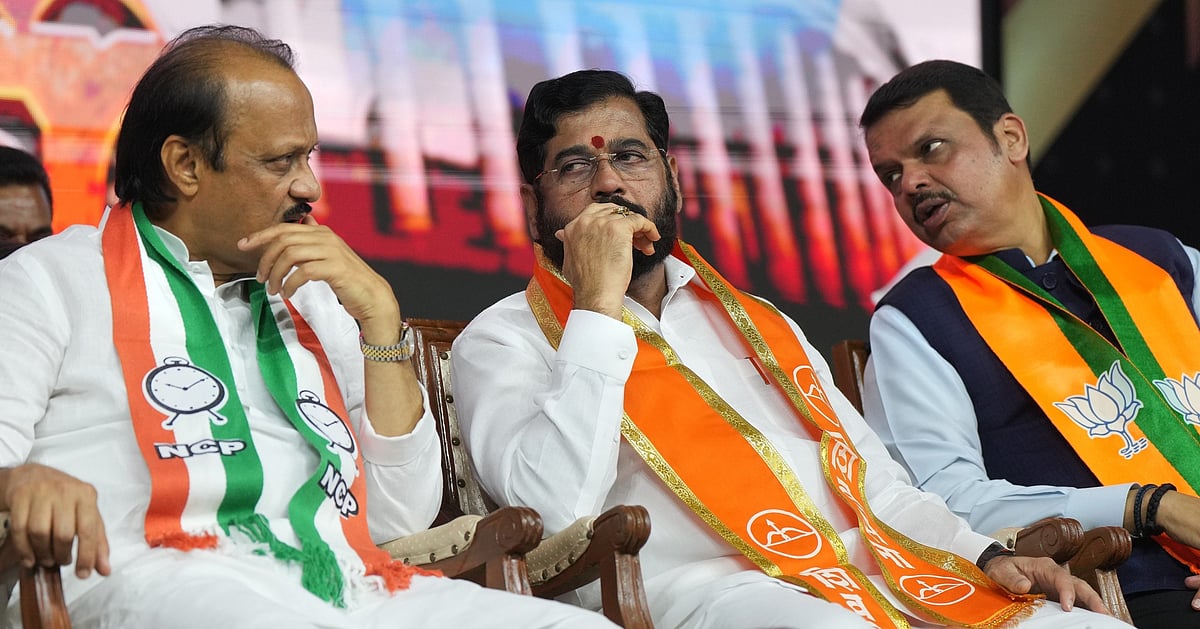 |
|
The political landscape of Maharashtra is currently abuzz with anticipation as the swearing-in ceremony for the newly elected government is scheduled for December 5th. This date marks a significant milestone in the state's political journey following the recent assembly elections. The location chosen for this momentous occasion is Azad Maidan, a sprawling public space in the heart of Mumbai, signifying the public's involvement in the formation of their government. However, a significant element of uncertainty still clouds the proceedings: the identity of the next Chief Minister remains shrouded in secrecy. Various political factions and alliances are engaged in intense negotiations and power-sharing agreements, each vying for the coveted position. The suspense surrounding the Chief Minister's appointment is causing considerable speculation and media frenzy, with various names being floated and dissected by political analysts and commentators. The delay in announcing the Chief Minister is likely due to the complex dynamics of coalition politics and the need to balance the interests of various participating parties.
The upcoming swearing-in ceremony is expected to draw a large crowd, reflecting the intense public interest in the state's political future. Security arrangements are expected to be heightened to ensure a smooth and peaceful event. The choice of Azad Maidan, a historically significant location often used for public gatherings and rallies, highlights the government's intention to make the event accessible and visible to the public. This decision also underscores the importance of the moment, underlining the transfer of power and the commencement of a new political chapter for Maharashtra. The event's significance extends beyond the state’s borders, as it serves as a significant indicator of the national political landscape, demonstrating the strength and influence of various political ideologies and alignments.
The uncertainty surrounding the Chief Minister's appointment has led to a flurry of predictions and analyses from political pundits and experts. Different scenarios are being explored, depending on the final agreements reached between the various coalition partners. The process of forming a stable government often involves intricate negotiations, compromises, and power-sharing arrangements that can take time to finalize. The intricate negotiations taking place behind the scenes emphasize the power dynamics at play and highlight the importance of each party's role in the new government. This period of political maneuvering and strategic negotiations is a common feature of coalition governments and underscores the complexity of managing diverse political interests under a shared governance structure. The outcome of these negotiations will have far-reaching consequences for the policies and direction of Maharashtra in the years to come.
The ongoing suspense also underscores the volatile nature of Indian politics, where alliances can shift unexpectedly, and power dynamics can change rapidly. The upcoming government's composition and policies will have significant impacts on various sectors, including infrastructure development, economic growth, social welfare programs, and environmental protection. The people of Maharashtra are closely watching the developments, anticipating the new government’s agenda and its plans for addressing the state's various challenges and opportunities. The December 5th swearing-in ceremony is not just a procedural formality; it is a pivotal moment that will shape the political direction of Maharashtra for the coming years and will be closely observed by the nation as a whole. The success or failure of the new government will be judged by its ability to address the concerns and aspirations of the people, fostering inclusive growth and sustainable development for the state.
The choice of Azad Maidan for the swearing-in ceremony also carries symbolic weight. This open space has historically been a venue for major political rallies and demonstrations, signifying the power of public opinion and the importance of citizen participation in democratic processes. The upcoming ceremony, therefore, serves as a potent reminder of the importance of public engagement in governance and the accountability of elected officials to the people they represent. The event will undoubtedly be subject to thorough media coverage, with national and international news outlets reporting on the event and its implications. The outcome of these negotiations will be closely watched not only within Maharashtra but also across India, as it provides insights into the dynamics of coalition politics and the ability of different political forces to work together in a complex, multi-party system.
